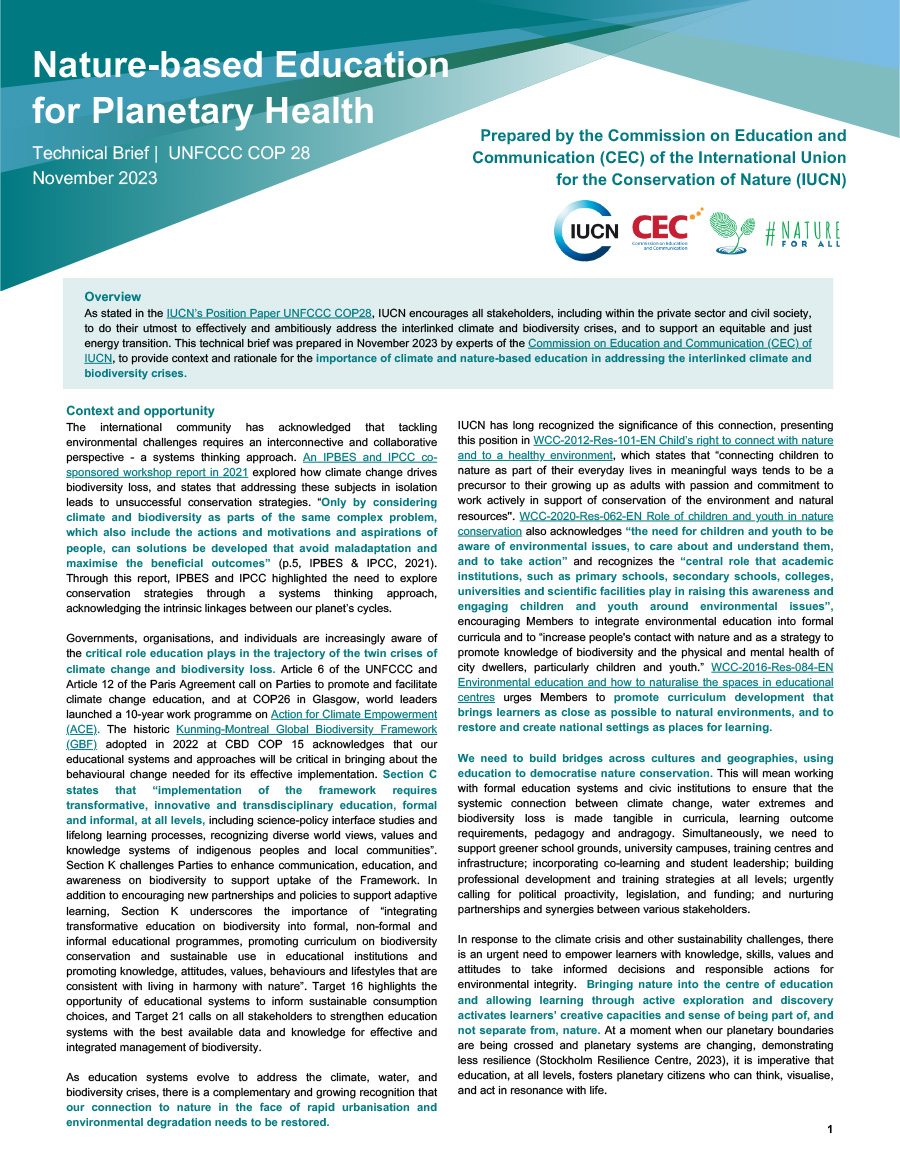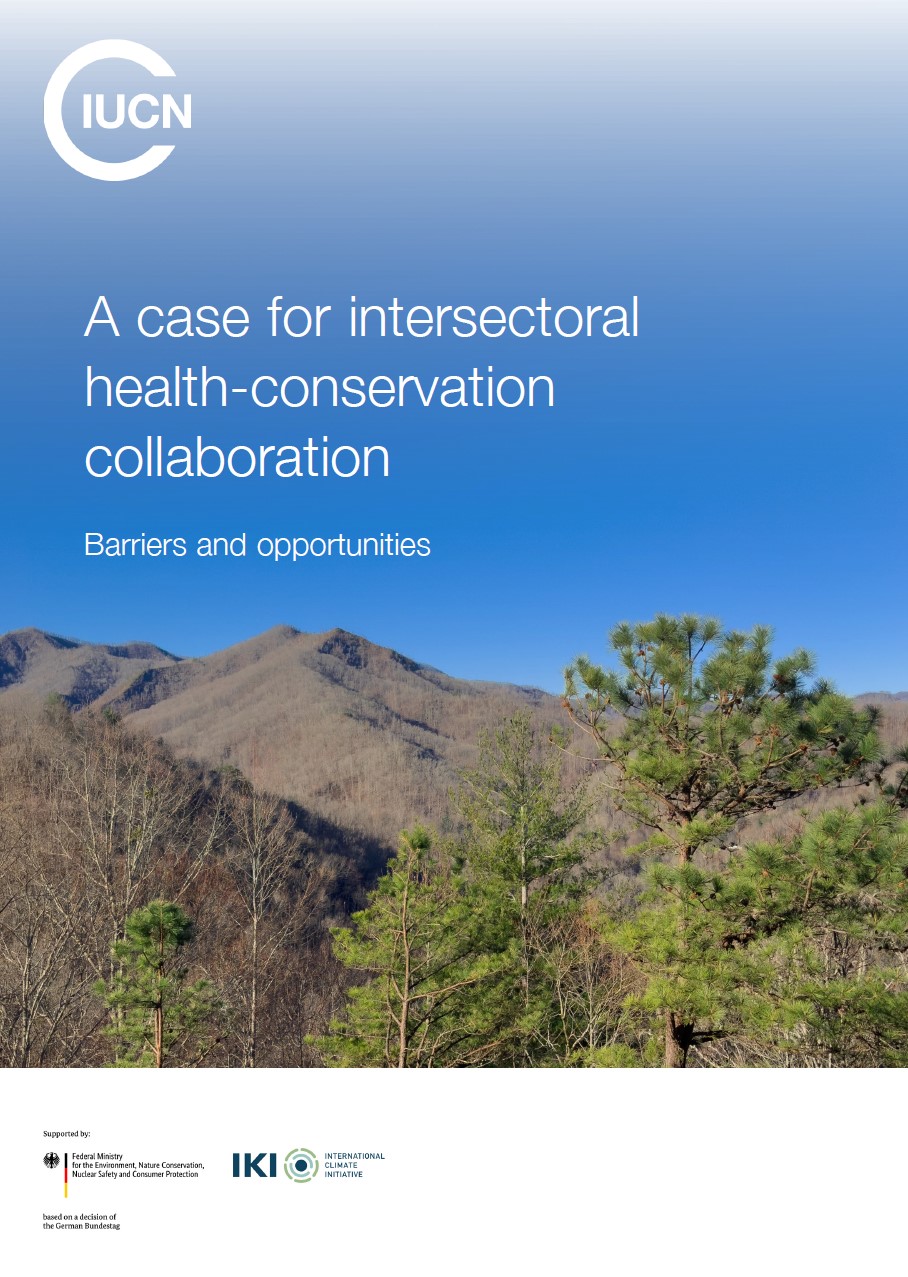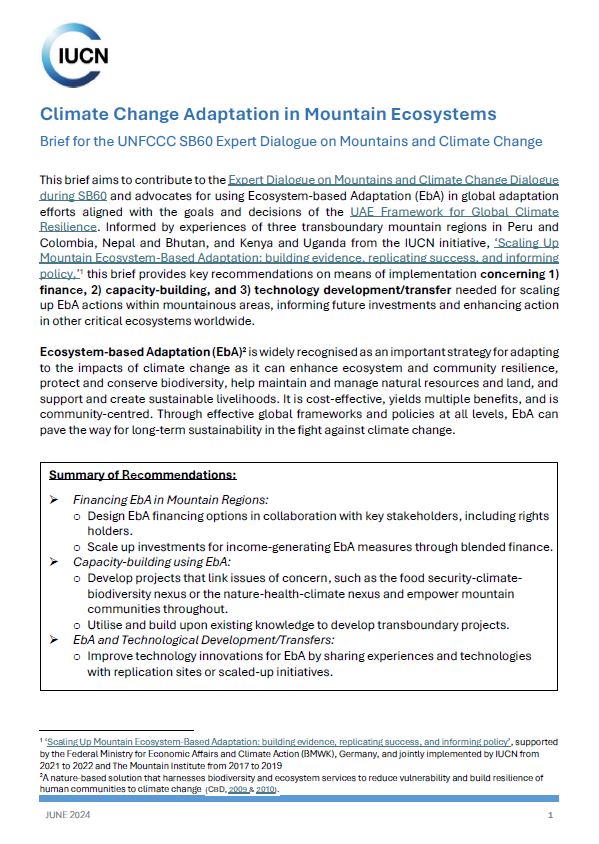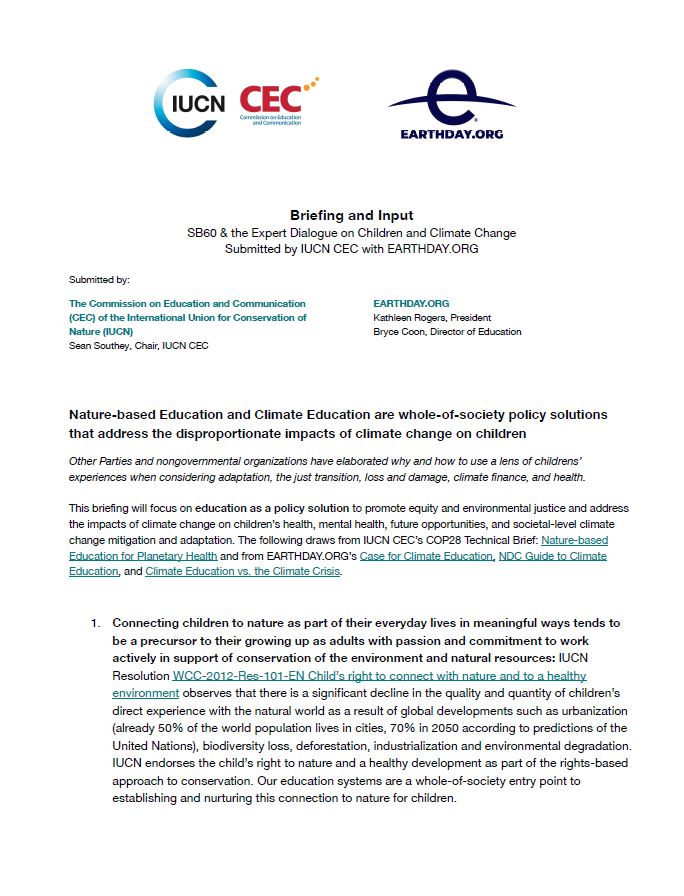Nature-based Education for Planetary Health
As stated in the IUCN’s Position Paper UNFCCC COP28, IUCN encourages all stakeholders, including within the private sector and civil society, to do their utmost to effectively and ambitiously address the interlinked climate and biodiversity crises, and to support an equitable and just energy transition. This technical brief was prepared in November 2023 by experts of the Commission on Education and Communication (CEC) of IUCN, to provide context and rationale for the importance of climate and nature-based education in addressing the interlinked climate and biodiversity crises.
The international community has acknowledged that tackling environmental challenges requires an interconnective and collaborative perspective - a systems thinking approach. An IPBES and IPCC co-sponsored workshop report in 2021 explored how climate change drives biodiversity loss, and states that addressing these subjects in isolation leads to unsuccessful conservation strategies. “Only by considering climate and biodiversity as parts of the same complex problem, which also include the actions and motivations and aspirations of people, can solutions be developed that avoid maladaptation and maximise the beneficial outcomes” (p.5, IPBES & IPCC, 2021). Through this report, IPBES and IPCC highlighted the need to explore conservation strategies through a systems thinking approach, acknowledging the intrinsic linkages between our planet’s cycles.




